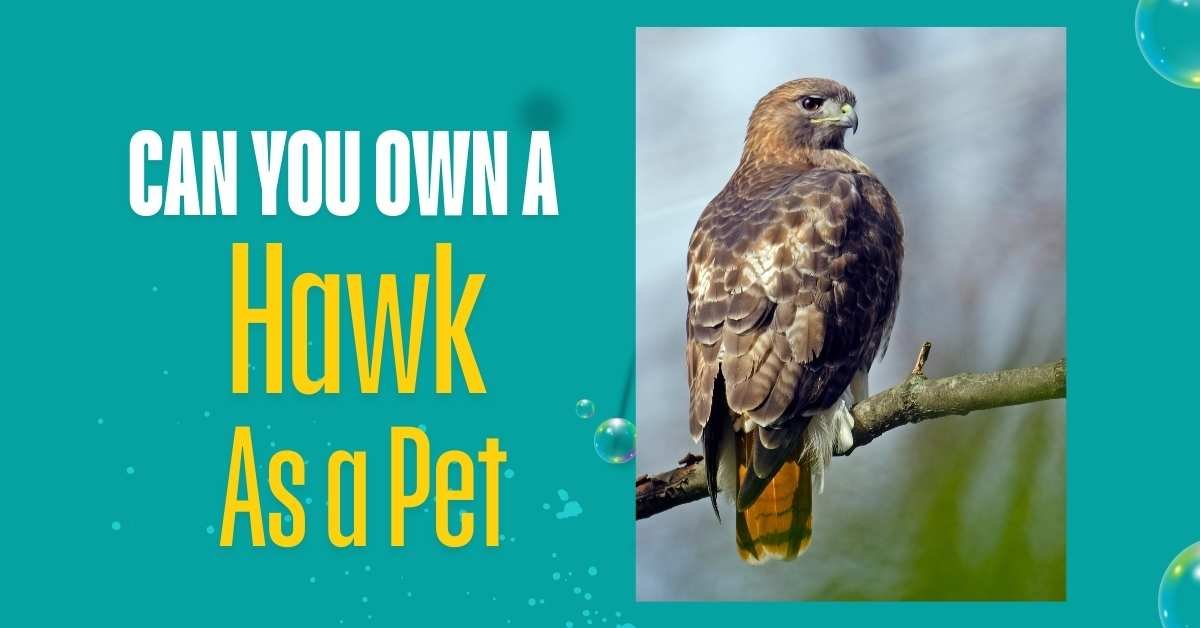Many people love birds and some even dream of owning a hawk. But can you really own a hawk as a pet? Let’s explore this idea in detail.
Legal Requirements
Before you consider owning a hawk, you must understand the laws. Different countries have different rules about owning birds of prey. In the USA, you need specific permits to own a hawk. Without these permits, owning a hawk is illegal and can result in heavy fines or other legal consequences.
Types of Permits
There are two main types of permits required to own a hawk:
Falconry Permit
This permit allows you to train and fly hawks. Falconry is a regulated activity, and getting this permit involves passing tests and often requires an apprenticeship.
Wildlife Rehabilitation Permit
This permit is for those who care for injured or sick hawks. It allows temporary custody of these birds until they can be released back into the wild.
| Permit Type | Purpose | Requirements |
|---|---|---|
| Falconry Permit | Train and fly hawks | Passing exams, apprenticeship, and regular inspections |
| Wildlife Rehabilitation | Care for injured or sick hawks | Specialized training and facility requirements |
Responsibilities of Owning a Hawk
Owning a hawk is a significant responsibility and not like having a typical pet such as a cat or dog. Hawks require special care, attention, and commitment.
Daily Care
Hawks are predatory birds and need a diet that consists mainly of meat. You must feed your hawk daily with appropriate food such as mice, quail, or other small animals. Fresh water should always be available.
Training
Training a hawk is a time-consuming process that requires patience and dedication. You need to learn specific skills to train and handle a hawk properly. Many people spend years mastering these skills to ensure the safety and well-being of both the bird and the handler.
Health Care
Regular veterinary check-ups are crucial for maintaining a hawk’s health. You need to find a vet who specializes in avian medicine, which can sometimes be challenging. Preventive care and early detection of health issues are vital for hawks.
Space Requirements
Hawks need plenty of space to fly and exercise. A small cage is inadequate and can lead to health problems and stress for the bird. A large outdoor area or aviary is necessary to meet their spatial needs.
Aviary
An aviary is a large enclosure designed for birds. It should be spacious enough to allow your hawk to fly freely and should mimic their natural environment as closely as possible. Proper perches, nesting areas, and safety features are essential components of a good aviary.
Costs Involved
Owning a hawk can be expensive. Here are some of the costs you should consider:
| Item | Cost |
|---|---|
| Permit Fees | $100 – $500 |
| Food | $50 – $100 per month |
| Vet Visits | $100 – $200 per visit |
| Aviary | $500 – $2000 |
Pros and Cons of Owning a Hawk
Owning a hawk comes with its own set of pros and cons. Here’s a look at both sides:
Pros
- Hawks are magnificent creatures.
- Training a hawk can be a rewarding and engaging hobby.
- Owning a hawk teaches responsibility and commitment.
Cons
- Hawks require a significant amount of time and care.
- The cost of ownership can be high.
- Special permits and extensive training are necessary.
Frequently Asked Questions
Can You Legally Own a Hawk?
Owning a hawk often requires special permits and adherence to local wildlife laws.
What Is the Cost of a Pet Hawk?
The cost can range from $800 to $2000, depending on the species and training.
Do Hawks Make Good Pets?
Hawks are wild animals and may not make good pets for most people. They require specialized care and training.
How to Care for a Pet Hawk?
Proper care includes a large aviary, a balanced diet, and regular veterinary check-ups.
Conclusion
Owning a hawk is a significant responsibility and only suitable for some. If you are passionate about hawks and prepared for the challenge, it can be a rewarding experience. Ensure you follow all legal requirements and provide the best care for your bird. If you are still interested, start by learning more about hawks, talking to experts, and visiting places where hawks are kept. This will help you understand what it truly takes to own a hawk.
